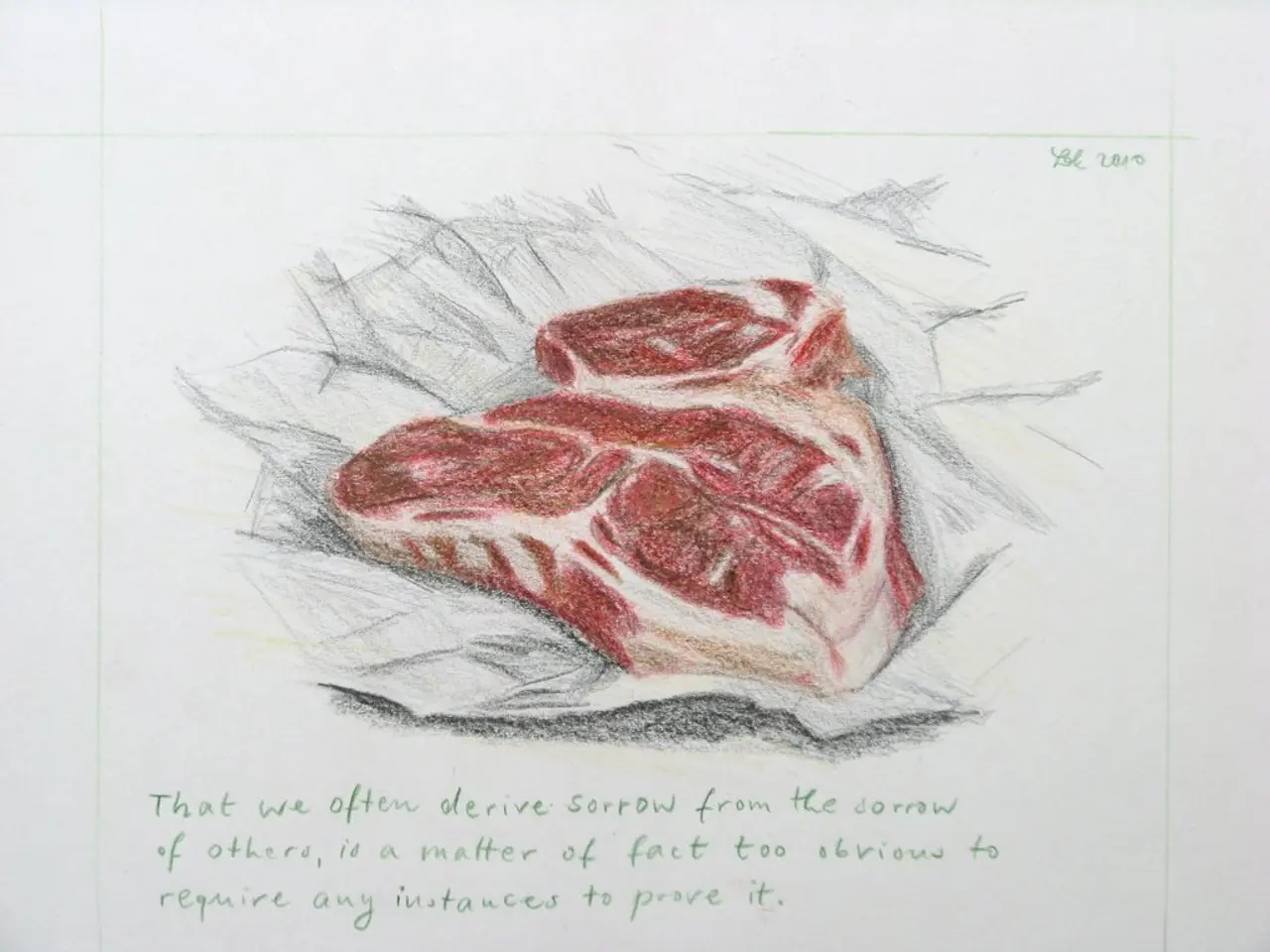Pioneering the Field First
Historic Collective Bargaining Agreement Reached at Birtat, a Leading Döner Meat Manufacturer
A significant milestone has been reached in the Döner meat industry in Germany, as Birtat, one of the leading manufacturers in the sector, and the union Nahrung-Genuss-Gaststätten (NGG) have agreed on a collective bargaining agreement (CBA). This marks the first time such an agreement has been established in the kebab meat industry.
The negotiations were prompted by a series of labor actions, including eleven warning strikes by workers at Birtat, a kebab meat manufacturer near Stuttgart. The strikes, which involved around 115 workers, reflected strong union organization and a willingness to engage in industrial action to achieve recognition and fair terms.
The CBA, considered a historic result by NGG and DGB state chairman Kai Burmeister, sets a precedent for wages and working conditions in the niche kebab meat sector. Although specific wage increase figures are not detailed in the sources, the union's success in securing a formal agreement after strikes suggests improvements in pay and conditions compared to previously unregulated or informal standards.
The agreement, which includes wage increases of up to 17 percent over a period until the end of 2026, could encourage other companies in the Döner meat industry to negotiate with the NGG or similar unions, potentially leading to broader wage increases and better labor standards across the sector.
Birtat, a subsidiary of Meat World SE, is the largest Döner skewer manufacturer in Baden-Württemberg and one of the leading suppliers in Germany. The company, which supplies thousands of snack bars and reaches over 13 million consumers monthly, is known for its products being found in almost every major city in Europe.
The employees at Birtat are involved in the process of chopping, marinating, and skewering the meat. The union NGG had initially demanded an increase in wages by 375 euros per month and a collective bargaining agreement. The CBA's establishment could reshape labor standards in the food sector, as the union NGG hopes to enforce collective bargaining regulations in other companies in the industry in the future.
In the second strike vote, around 90% of NGG members voted in favor of accepting the collective bargaining agreement. The union and the company Meat World SE (Birtat) are committing to negotiating a collective agreement on job classification and a framework agreement. The starting wage for the employees at Birtat has been set at 2,600 euros.
The CBA represents a significant milestone in labor rights within the Döner meat industry in Germany, likely leading to wage improvements for workers and acting as a catalyst for similar agreements in other companies in the industry. The union's successful strike action highlights growing worker militancy and the potential reshaping of labor standards in this food sector.
The historic Collective Bargaining Agreement reached at Birtat, a leading Döner meat manufacturer, has set a significant precedent in both the Döner meat industry and the broader food sector, possibly prompting improvements in finance, business practices, and labor standards for other companies. The success of the NGG in securing this agreement through strike action demonstrates an increased focus on finance and business matters in the industry.




